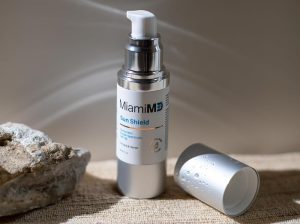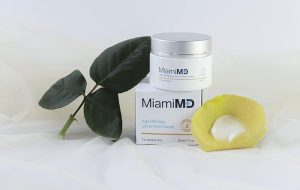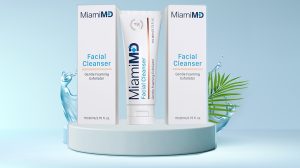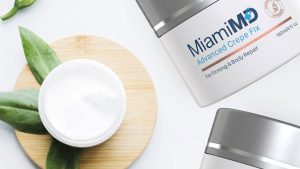Looking for the best ingredients for facial cleanser to suit your skin? Whether you have dry, oily, or sensitive skin, the right cleansing ingredients can make all the difference.
The best facial cleansers combine science and skincare to deliver effective results. Hydration powerhouses like hyaluronic acid and exfoliating agents like alpha hydroxy acids work together to leave your complexion clean, healthy, and glowing.
This guide breaks down the top ingredients that hydrate, exfoliate, soothe, and protect — plus what to avoid for healthy, glowing skin.
What Is a Facial Cleanser?
Facial cleansers are the unsung heroes of any skincare routine. Whether you’re a minimalist who sticks to the basics or a skincare enthusiast with a 10-step regimen, cleansers are the foundation of healthy skin.
Simply put, a facial cleanser is a product designed to remove dirt, oil, makeup, and impurities from your skin. It paves the way for other skincare products to work effectively, leaving your skin clean and refreshed.
“Think of your facial cleanser as the first step in maintaining skin health, says board-certified dermatologist Dr. Sheila Farah. “It sets the stage for how well your skin absorbs serums, moisturizers, and sunscreens” (1).
How Do Facial Cleansers Work?
Facial cleansers are designed to be the first line of defense in maintaining healthy skin. They work by breaking down and lifting away impurities such as dirt, sweat, makeup, excess oils, and environmental pollutants that build up on your skin throughout the day.
Cleansers effectively remove these impurities, helping prevent clogged pores, breakouts, and dullness. They leave your skin refreshed and primed for the next steps in your routine.
Most cleansers contain a combination of surfactants and active ingredients that work together to clean without stripping your skin of its natural oils. However, the way a cleanser performs depends heavily on its formulation.
Some are designed to hydrate and replenish moisture, while others focus on exfoliating dead skin cells or calming irritation for sensitive skin.
The key is to find a cleanser tailored to your skin type and concerns. Whether you have oily, dry, combination, or sensitive skin, choosing the right cleanser ensures your skin stays clean, balanced, and ready to absorb the benefits of your serums and moisturizers.
Why Are the Right Ingredients Important in a Cleanser?
The ingredients in your cleanser can make or break your skincare routine. A good cleanser removes impurities and nourishes and protects your skin.
Dr. Emily Chang, a cosmetic dermatologist, emphasizes that “Your cleanser should do more than just clean. It should actively improve your skin’s health by hydrating, soothing, or protecting it from damage” (2).
Choosing the wrong ingredients, or worse, ones that irritate your skin, can lead to dryness, redness, or even breakouts. That’s why understanding what goes into your cleanser is so important.
What Is the Potential Impact of Harmful Ingredients?
While cleansers are essential for skin health, some formulas contain harsh ingredients that do more harm than good. Sulfates, parabens, and artificial fragrances are often to blame for skin irritation or long-term damage.
Over time, harmful ingredients can strip your skin of natural oils, disrupt your skin barrier, and leave you vulnerable to dryness or sensitivity.
Dr. Kavita Patel, a skincare specialist, warns, “Harsh cleansers can undermine the health of your skin by compromising its natural defenses. Look for gentle, effective ingredients that match your skin’s needs” (3).
Best Ingredients for Facial Cleansers by Skin Concern
When shopping for a facial cleanser, prioritize ingredients that nourish, hydrate, and protect your skin. The right ingredients cleanse effectively, support your skin’s natural barrier, and help address specific concerns like dryness, breakouts, or sensitivity.
A well-formulated cleanser can do more than just clean. It can leave your skin feeling refreshed, balanced, and ready for the rest of your skincare routine. Here are some of the best ingredients to look for:
Hydrating Ingredients
A well-hydrated complexion looks healthier and is better at retaining elasticity and resisting irritation. Hydrating cleansers are especially important for those with dry or sensitive skin, as they prevent the stripping of essential moisture.
- Hyaluronic Acid: This superstar ingredient attracts water to the skin, keeping it plump and moisturized.
- Glycerin: A powerful humectant, glycerin locks in moisture and prevents dryness.
“Hydrating ingredients like hyaluronic acid and glycerin ensure that your skin feels soft and supple after cleansing,” says Dr. Farah.
Exfoliating Ingredients
Gentle exfoliation can brighten your complexion and help unclog pores. Regular use of cleansers with exfoliating ingredients can improve skin texture, reduce dullness, and even help fade dark spots or post-acne marks.
That said, over-exfoliating can damage the skin barrier, so look for formulations that balance exfoliation with hydration and soothing agents.
Gentle exfoliation can brighten your complexion and help unclog pores. Here are some key ingredients to look for:
- Alpha Hydroxy Acids (AHAs): Ingredients like glycolic acid and lactic acid work to remove dead skin cells and improve texture.
- Beta Hydroxy Acids (BHAs): Salicylic acid is a standout BHA that targets oil and clears out clogged pores.
Dr. Chang notes that “Exfoliating cleansers are great for improving skin tone and texture, but make sure they’re gentle enough for daily use” (4).
Soothing Ingredients
Sensitive or irritated skin benefits from calming, anti-inflammatory ingredients. These ingredients reduce redness and strengthen the skin’s natural barrier, protecting it from further irritation.
Soothing cleansers are ideal for use after sun exposure, during harsh weather conditions, or any time your skin feels stressed or inflamed.
- Aloe Vera: Known for its cooling and soothing properties, aloe vera helps reduce redness and irritation.
- Chamomile: This natural ingredient calms irritation and soothes sensitive skin.
“Soothing cleansers help maintain a healthy skin barrier, especially for those with sensitive skin,” explains Dr. Patel.
Antioxidant Ingredients
Antioxidants protect your skin from environmental damage and help combat premature aging. They work by neutralizing free radicals, which can otherwise lead to oxidative stress and damage collagen in the skin.
Incorporating antioxidant-rich cleansers into your routine can provide long-term benefits, such as improved skin resilience and a brighter, more even tone.
Look for antioxidants like:
- Vitamin C: Brightens the skin and supports skin against free radicals.
- Green Tea Extract: A powerful antioxidant that reduces irritation and protects against environmental stressors.
“Antioxidants in your cleanser can provide an extra layer of defense against pollution and UV damage (5),” says Dr. Farah.
Ingredients To Avoid in Facial Cleansers for Healthy Skin
Not all cleansers are skin-friendly. While some are packed with nourishing and hydrating ingredients, others contain harsh chemicals that can damage your skin over time.
Choosing the wrong ingredients can strip your skin of its natural moisture, disrupt its delicate barrier, and leave it irritated or vulnerable.
Avoid these common culprits:
Sulfates
Sulfates like sodium lauryl sulfate are foaming agents often found in cleansers, but they can be too harsh for the skin. These ingredients strip away natural oils, leaving your skin dry, tight, and prone to irritation.
While sulfates create that satisfying lather, they may upset your skin’s natural balance.
Prolonged use of sulfate-heavy cleansers can weaken the skin’s barrier, making it more vulnerable to environmental damage and sensitivity. If you notice dryness or tightness after washing your face, it might be time to switch to a sulfate-free formula.
Parabens
Parabens are synthetic preservatives used to extend the shelf life of skincare products. But they have raised concerns about potential hormonal disruption.
These chemicals may mimic estrogen in the body, which has led to questions about their long-term safety. While research is still ongoing, many people prefer to avoid parabens as a precaution.
Parabens can also sometimes lead to skin irritation, especially for those with sensitive skin. Opting for paraben-free cleansers is safer for your skin and overall well-being.
Artificial Fragrances
Synthetic fragrances might make your cleanser smell appealing, but they’re often filled with unnecessary and irritating chemicals. These fragrances can trigger allergic reactions, redness, or sensitivity, especially for delicate skin. Opting for fragrance-free cleansers ensures you’re not exposing your skin to avoidable irritants.
“If your cleanser leaves your skin feeling tight or irritated, it’s likely due to harsh ingredients. Opt for sulfate-free and fragrance-free formulas instead,” advises Dr. Chang.
By avoiding these harmful ingredients, you can protect your skin’s natural barrier and keep it looking healthy, hydrated, and balanced.
The Bottom Line
The best ingredients for facial cleansers are those that work with your skin, not against it. Whether you’re looking for hydration, gentle exfoliation, or antioxidant protection, choosing the right formula can elevate your entire routine.
Always check labels for proven ingredients like hyaluronic acid, salicylic acid, and chamomile — and skip harsh chemicals like sulfates or parabens. Your skin will thank you!
Resources:
- American Academy of Dermatology. Face washing 101. https://www.aad.org/public/everyday-care/skin-care-basics/care/face-washing-101
- Cleveland Clinic. Understanding Skin Types.
https://health.clevelandclinic.org/understanding-skin-types
- PubMed Central. Cleansing without compromise: the impact of cleansers on the skin barrier and the technology of mild cleansing.
https://pubmed.ncbi.nlm.nih.gov/14728695/
- AAD. How To Safely Exfoliate at Home.
https://www.aad.org/skin-care-secrets/safely-exfoliate-at-home - UCLA Health. Simple steps to protect your skin from everyday pollution.
https://www.uclahealth.org/news/article/simple-steps-protect-your-skin-everyday-pollution





